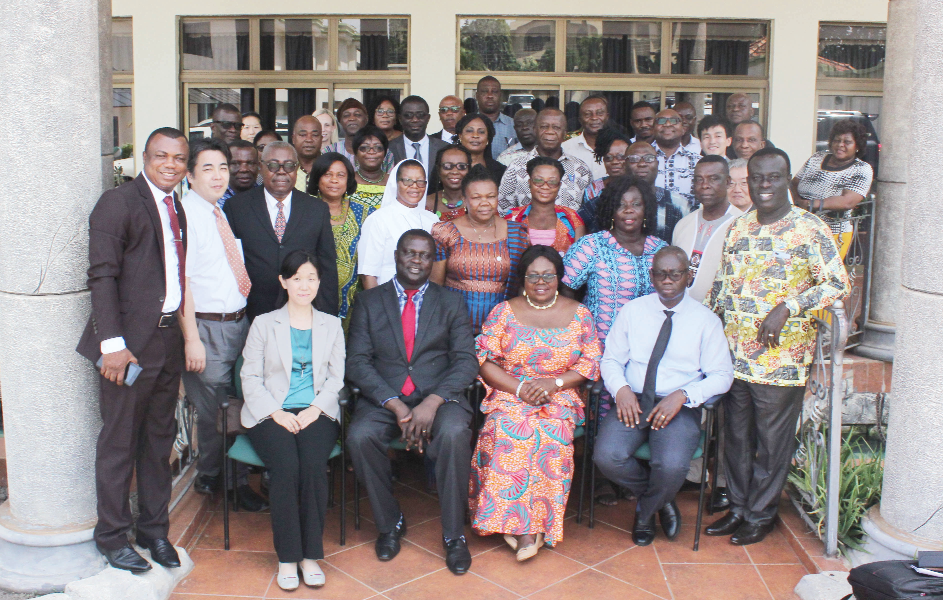
Policy for teachers’ professional development set to take off
A nationwide rollout of the Pre-Tertiary Teacher Professional Development and Management (PTPDM) policy is set to take off during the 2018/2019 academic year.
This is after a successful implementation of a pilot project in five districts in the country.
Advertisement
The PTPDM policy, initiated in 2010 and revised in 2014, seeks to provide a regulatory framework to manage and develop teachers into highly proficient practitioners.
Mandate of PTPDM
It also seeks to provide a career structure based on evidence of professional development and growth of the teacher.
The PTPDM policy, championed by the then Teacher Education Division, now the National Teaching Council (NTC), on behalf of the Ministry of Education and the Ghana Education Service (GES), was funded by the Japan International Cooperation Agency (JICA).
The project will provide a policy instrument to guide the institutionalisation of the Continuous Professional Development (CPD) programmes and the setting of minimum standards of the teaching profession.
It will also guide the enhancement of teachers’ professional values and attitudes, professional knowledge and professional practice.
Beginning of new era
At the Final Joint Coordinating Committee Meeting of the PTPDM in Accra on Wednesday to present the document policy, the Deputy Minister of Education in charge of General Education, Dr Yaw Osei Adutwum, said he personally felt the subject area proficiency must be mentored, certified and be approved before the teacher was allowed to teach that particular subject, especially at the secondary level.
He said for instance “the fact that the University of Jachie has given you a degree in Mathematics and Education should not automatically qualify you to come and teach at the Accra Academy and I think that is an issue we need to look at.”
Dr Adutwum, therefore, called for an assessment that ensured that irrespective of the university the newly trained teacher went to, that teacher should enter the classroom, having fully mastered the content.
Safeguarding the teaching profession
The Director-General of the GES, Professor Kwasi Opoku-Amankwa acknowledged that over the last four years JICA and the committee had been able to put out a policy document with input from the teachers and the teacher unions, which had been piloted in a number of schools.
He said “we pride ourselves as teachers and once we call ourselves professionals, there are basic requirements that make us professionals.”
Professor Opoku-Amankwa, therefore, urged those in the profession to safeguard it and make it attractive and one that people would be proud of.
Continuous self-improvement mechanism
Welcoming the stakeholders, the Ag Executive Secretary of the NTC, Dr (Mrs) Evelyn Owusu Oduro, explained that the policy developed the teachers through a continuous self-improvement mechanism by equipping them with skills and competences that would meet social aspirations.
She gave an assurance that the NTC would put in place measures to help the GES recruit and retain the best teachers in the profession.
The Chairman of the GES Council, Mr Michael Nsowah, told the JICA team that the end of the project did not mean the end of the cordial relationship with the GES.
He thanked the JICA for its support for the education sector and particularly for the development of the policy.
JICA support
A Senior Representative of JICA, Ms Yuko Ishizawa, said she was happy that “as the project, which was to institutionalise the development of the teaching profession, comes to a successful end, there are success stories.”



